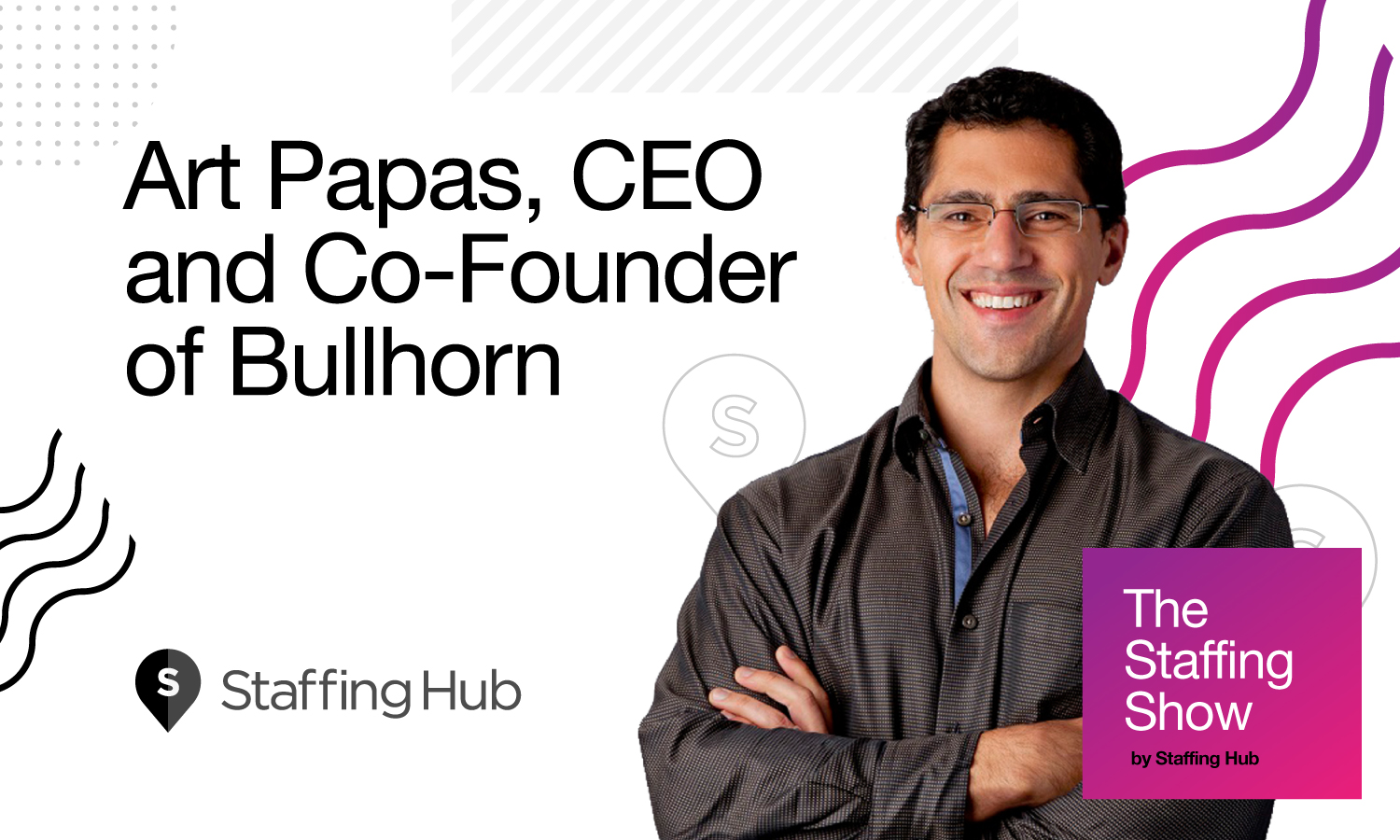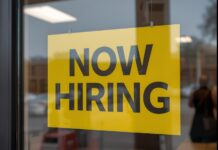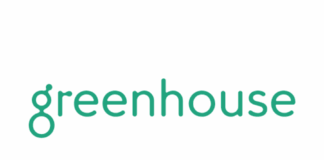
We’re very excited to introduce you to our brand new podcast, The Staffing Show! The Staffing Show is the only podcast that delivers tools, tips, and tactics from the staffing and recruiting industry’s top executives and thought leaders. Tune in for insight into what drives success in staffing, how technology is disrupting business as usual, and what trends and evolutions are on your peers’ mind (and keeping them up at night).
In this episode, Caitlin Delohery, the Editor in Chief of Staffing Hub, interviews Art Papas, the CEO and Co-Founder of Bullhorn, about how to keep your candidates out of black holes, how to avoid going the way of Blockbuster, and what he’s most excited about at this year’s Bullhorn Engage.
And tune in for episode 2 this Friday, with Ralph Henderson, president of AMN Healthcare.
Here’s the transcript of the episode.
Staffing Hub: What do you think are some of the secrets to Bullhorn’s success? Or what drives you and your team?
Art Papas: Well, that’s relatively easy question, actually, because I think that it’s the people at Bullhorn that drive the company and its success. I would say the people, the mission, and the core values are at the center of everything we do.
So, our mission is to create an incredible customer experience. That’s the mission, and people take it pretty seriously here, you’ll hear even folks who are entry-level at Bullhorn talk about the mission.
[Bullhorn] was born with this do-or-die attitude about pleasing customers, and that has really gotten in the groundwater. It permeates everything we do.
The reason it’s a powerful mission for us is because, when I started the company 19 years ago, it was the midst of a recession, and in the staffing industry it was a pretty tough time. In order to survive as a company, we really had to focus on customer success and helping our customers succeed with our products because if we didn’t, we were going to run out of money. So the company was born with this do-or-die attitude about pleasing customers, and that has really gotten in the groundwater. It permeates everything we do.
We have five core values. All five of them are really like a roadmap for how we behave with customers in order to execute on the mission. I would say that has really perpetuated this growth and success that you see from outside looking in.
But, on the inside, it’s great people who care about really happy customers who want to continue to work with us and refer us business. We spent the last 19 years consecutively growing every year that way. I would say that’s at the center of it.
Staffing Hub: That really launches into my next question. You have a lot of, obviously, expertise in the staffing and recruiting industry, and a lot of data to back up your observations, and I was wondering what advice you have for firms to build the kind of candidate-focused culture that you’ve built at Bullhorn? Or what advice do you give them on how to build a better candidate experience?
Papas: Okay. I’ll use my own experience as a guide here, in that, when we were a startup, I was involved intimately with every single customer. I knew what was going on, and I was able to make sure that they had a great experience.
Everyone in the staffing industry who tries to grow their business finds that in the beginning. When they’re a startup, and when they’re just getting going, they’re involved in almost every single customer interaction and every single interaction with the talent.
You think about most staffing firms, they’re interacting with hundreds and hundreds of people every single day. If somebody is walking away with a negative experience or a bad taste in their mouth, that becomes your brand.
As you scale and you add people you get further and further away from the front lines, and the everyday interactions that go on. That happened to us, and as we grew we got to about 200 people, I realized that I was so disconnected from the front lines that our customer experience had deteriorated and had slipped backward quite a bit. I didn’t have systems in place to ensure that customers were always having a great experience.
Just saying it, or just saying “that’s our mission,” it’s not enough if you don’t back it up with systems and process that ensure that that happens.
So we went through a period of time where we had to start measuring quality of interactions, we had to start implementing surveys. I think any business over 10, 15, 20 people, you need to start thinking about how you actually measure success with each customer interaction. What are you going to do when there’s a problem or somebody has a negative interaction?
Measuring quality ensures quality . . .
You think about most staffing firms, they’re interacting with hundreds and hundreds of people every single day. If somebody is walking away with a negative experience or a bad taste in their mouth, that becomes your brand. So you have to find ways … and looking at data like how successful are they on a financial basis might not always tell the right story.
We’re big proponents of net promoter scores and surveys. We also do a lot of call quality monitoring. We have people whose job it is to do quality control, and all they do is listen to phone calls all day. They’ll intervene and say, “Hey, this was really, really good. Everybody should adopt this best practice.” Or, “This was really bad. Let’s flag this to the manager and to the employee, and coach them on what to do next time.” I think that measuring quality ensures quality rather than hoping people are doing what you expect them to do.
Delohery: What are some of the best practices that you have noticed from making all of these observations? Maybe especially in terms of candidate communications or candidate interaction.
Papas: There’s a lot of data and a lot of surveys and studies about the black hole. I think that’s probably the biggest problem that people have on the job-seeker side. When somebody’s applying to a job and they don’t hear back, it creates a sense that nobody cares. “Nobody cares” is probably one of the worst messages that you can send to a potential customer. And we’ve all had that experience where you reach to a company, and you get nothing back, and you’re like, “They don’t care about my business.”
I think it’s a simple thing just to say, “We’ve received your application.” Then beyond that, to actually come back quickly and say, “We’ve reviewed your application and we’re moving forward at this time.” Even just that is like, “Okay, I’m not in consideration. Fine. Good. I can move on.” But they care, because they came back and told me that message, which I may not like it but at least it’s better than no response at all, which makes me wonder did they even look? Did they even take the time to review my application or did they just ignore it?
I would argue, ignoring somebody’s application is worse than reviewing it and rejecting it. And the faster you do that, the better.
Delohery: You mentioned this idea of a black hole, and sort of points to, I think, larger breakdowns in the candidate recruiter conversation sometimes. I was wondering what other things would you highlight as the biggest challenges facing the staffing and recruiting industry right now?
Papas: There’s a huge, huge talent shortage right now, and a skills gap. I think that’s an enormous challenge for just about every single one of our customers. Especially as you get higher up into the skilled trades, or IT, or nursing — specialized job functions where there’s a knowledge requirement and a skill requirement that’s high. Those roles just aren’t getting filled, and they sit open for quite a long time.
I think that the challenge is how to find the talent and how to engage the talent once you find it. Anybody who’s out there on LinkedIn or the job boards, they’re pretty well picked over. It’s a big challenge, I think, for anybody in the staffing industry right now in trying to engage talent, and try to fill those jobs, especially when there’s a high level of skill required.
Delohery: How does Bullhorn help your clients meet these overarching challenges?
Papas: What I would say is that Bullhorn’s system is designed to do a number of things. We have software that helps with sales and managing clients on the front end. We have software that helps manage all sorts of transactions along the way.
We also have a pretty huge partner ecosystem with something like 60 solutions that are recruitment-specific. They’re aimed around sourcing, aimed around artificial intelligence, or aimed around redeployment or re-engaging dormant candidates
Whether it’s a permanent job, or contingent labor, which most of our customers are focused on, contract staffing and temporary staffing … really they’re providing a contingent workforce to large companies. We look at the spectrum of all the things that we provide, and you get into things like sourcing and candidate relationship management. Well, we have a bunch of software off the shelf that we provide that helps with those activities.
But we also have a pretty huge partner ecosystem with something like 60 solutions that are recruitment-specific. They’re aimed around sourcing, aimed around artificial intelligence, or aimed around redeployment or re-engaging dormant candidates that are in your database from two years ago. You look at that and you say it’s not the software itself, it’s really the ecosystem of solutions that live in and around the software. That provides customers a ton of leverage.
Delohery: I’m now going to jump into my next question, which is you have over 20 years of experience in the tech space, and I know a lot of staffing and recruiting firms that are sort of trying to figure out how AI is going to impact the industry. I was wondering if you could speak a little bit to how you think firms can best harness the power of disruptive technologies like automation and AI.
We have a number of customers who are using chatbots. Those chatbots are artificially intelligent. They can process natural language, engage a candidate like a human being would and ask basic screening questions in real time so that the applicant feels like, “Wow, I’m engaging with a recruiter.”
Papas: Yeah, it’s a good news-bad news story. The good news for anyone in the industry is that there’s no technology yet leveraging artificial intelligence that is pervasive and is taking over and disrupting anyone’s jobs.
However, there are some early signs that artificial intelligence has some very practical applications in the staffing and recruitment space. Specifically around the first thing I mentioned, which is when you look at how do you respond to applicants on our website, we have a number of customers who are using chatbots. Those chatbots are artificially intelligent. They can process natural language, engage a candidate like a human being would and ask basic screening questions in real time so that the applicant feels like, “Wow, I’m engaging with a recruiter.”
We’ve seen cases where, even when the chatbot says “I’m a robot,” people still interact with it, and they like it, and they’re happy, because they’re getting instant feedback.
Say you’re applying for a job and it requires an advanced degree. The first question the chatbot asks you is, “Can you work in the US?” Or, “Do you have an undergraduate degree? Do you have an advanced degree in astrophysics?” “No, I don’t.” Okay, you’re not going to go any further, because this job requires that. Again, it’s bad news from the candidate, but the good news is that you’re getting back to them and giving them an answer quickly. Then you can redirect them to another job. “Here’s a job that might be a better fit for you, based on your interests.”
AI and automation are like very infantile, and the first versions of these tools will be pretty rudimentary. Pretty brittle. They’ll break easily, and people will be able to figure out that they’re robots. But, I think three or four years from now, we’re going to look back and be astonished at the pace of advancement of these technologies.
There’s a real practical application. Another application we’re seeing is in engaging dormant candidates who have been in your database for a long time. We’re seeing customers leverage a couple products that we’re partnered with on that side as well. And that’s starting to really take traction.
I think we’re just early. AI and automation are like very infantile, and the first versions of these tools will be pretty rudimentary. Pretty brittle. They’ll break easily, and people will be able to figure out that they’re robots. But, I think three or four years from now, we’re going to look back and be astonished at the pace of advancement of these technologies.
I don’t think [AI] is technology that people can afford to ignore.
It’s sort of like Alexa or Siri. These things that seem kind of dumb right now, I think the machine learning is actually making them better, faster. The pace at which they get better at understanding human beings is going to increase and accelerate. So, while the good news is nobody’s missing out, I don’t think this is technology that people can afford to ignore.
Delohery: This may be related, but how do you think these changes and the larger changes that you’re observing in the industry will look in two, three, four years? How do you think the talent acquisitions base is going to evolve?
People are going to be able to spend more time engaging in higher-quality activities. The firms that aren’t adapting are going to struggle, because they won’t be as effective and they won’t be as profitable.
Papas: I think cycle times are going to compress, because machines are going to be doing a lot of interaction, and they’re going to be automating a lot of the mundane tasks. So people are going to be able to spend more time engaging in higher-quality activities. The firms that aren’t adapting are going to struggle, because they won’t be as effective and they won’t be as profitable.
If you don’t have the skills to build relationships with people and manage them and influence them, then it’s going to be a problem.
I think it also means that the caliber of talent in the industry is probably going to increase in terms of people’s relationship-building skills. So today, let’s say I’m a recruiter and I’m able to screen 100 candidates/day over the phone, and I’m really good at dialing quickly, and engaging people, and having conversations, that job is going to be automated. If you don’t have the skills to build relationships with people and manage them and influence them, then it’s going to be a problem.
Also, I think the industry gets kind of a bad rap because there’s a lot of engagement that’s inconsistent. When you have robots doing that job, and automation doing that job, it’s going to be consistent.
For instance, when you first get somebody engaged for a job search, you probably shouldn’t ask them what their salary requirements are, especially if they’re a senior level candidate. You have to be a little more nuanced.
By the time the recruiter gets engaged, the robot will have already asked all the basic questions. The recruiter can now get on the phone, and build a relationship, and actually have that kind of discussion. But I think you’re going to see a lot of that. There’s going to be an up-leveling of talent, I think, in the industry. That’s my projection.
Delohery: For those firms that are slow to evolve, or maybe have some trepidation, or internal barriers to adopting these technologies or keeping up with the compressed cycle in some way, do you have any entry-level advice for firms that are a little bit more tech-phobic or future phobic?
If you aren’t prepared to get in gear two years from now, you really could be at an extreme disadvantage, and potentially risk disruption as a business. If automation does become disruptive in the space, disruption is messy business, and businesses do get turned over. Look at Blockbuster, right? It’s a business that thought it had plenty of time to figure out the internet and didn’t.
Papas: I would say those firms need to start preparing their stakeholders that this could be coming, and could be really critical — existential — to their business.
You couldn’t look at it today and say, “We need to be doing this. Everybody’s doing it.” That’s not the case. But 18 months from now, 24 months from now, that could be the case.
If you aren’t prepared to get in gear two years from now, you really could be at an extreme disadvantage, and potentially risk disruption as a business, right? If automation does become disruptive in the space, disruption is messy business, and businesses do get turned over. Look at Blockbuster, right? It’s a business that thought it had plenty of time to figure out the internet and didn’t.
Delohery: Yeah. I think that’s a great warning for folks that think they have a little bit more time than they do with these technologies. And relatedly, or maybe not, what is on the horizon for Bullhorn?
What’s great about Bullhorn Engage is it’s an industry event that’s focused on innovation. It’s about how to engage talent, how to engage clients, and as leaders, how to engage your teams to drive performance and results.
Papas: Of course, we have our own artificial intelligence initiative on the horizon that we’re working on in some of the areas that I mentioned earlier.
We also have a relatively unique position in that Bullhorn has this enormous customer base with an inordinate amount of data. The amount of data that we can leverage and harness to give our customers insight, and learn from the data across our customer set, and be able to make better predictions, and help the customers make better decisions about their business is pretty powerful.
That’s something that we’re working on as well, is sort of a predictive analytics, and an engine that can make recommendations to our customers about what they should do next, or trends that are starting to emerge in their business that may not be obvious on the financial end but are starting to show up in activity data and things like that. That’s a very exciting part of the future for us.
We have our big customer conference, Engage, coming up in June. Engage is not really a Bullhorn conference. It’s a conference where we’re the headline sponsor, and we provide content, obviously. But what’s great about Bullhorn Engage is it’s an industry event that’s focused on innovation. It’s about how to engage talent, how to engage clients, and as leaders, how to engage your teams to drive performance and results. It’s three days, it’s in June. The next one is in Boston. There’s another one in London in September, October time frame.
The one coming up in Boston will probably be well over 1,000 people. It’s a great conference. We have some incredible speakers. We’ve got Captain Sullenberger, who’s the guy that landed the commercial airliner in the Hudson, saving all the passengers when he had multiple engine failure.
He’s going to be our keynote speaker. He’s got an awesome story to tell about preparation and leadership, and how you behave in high-pressure situations. Then, we have a whole ton of great industry speakers, and panels, and networking opportunities, and parties. It’s a really fantastic three days. You can check it out at engage.bullhorn.com.
Looking for more industry interviews? Check out our entire staffing executive interview series.





